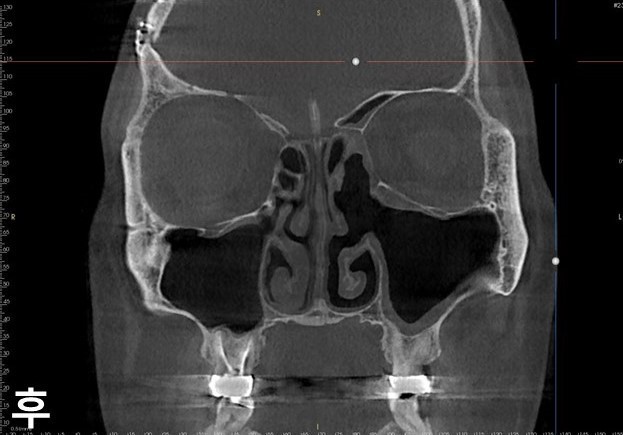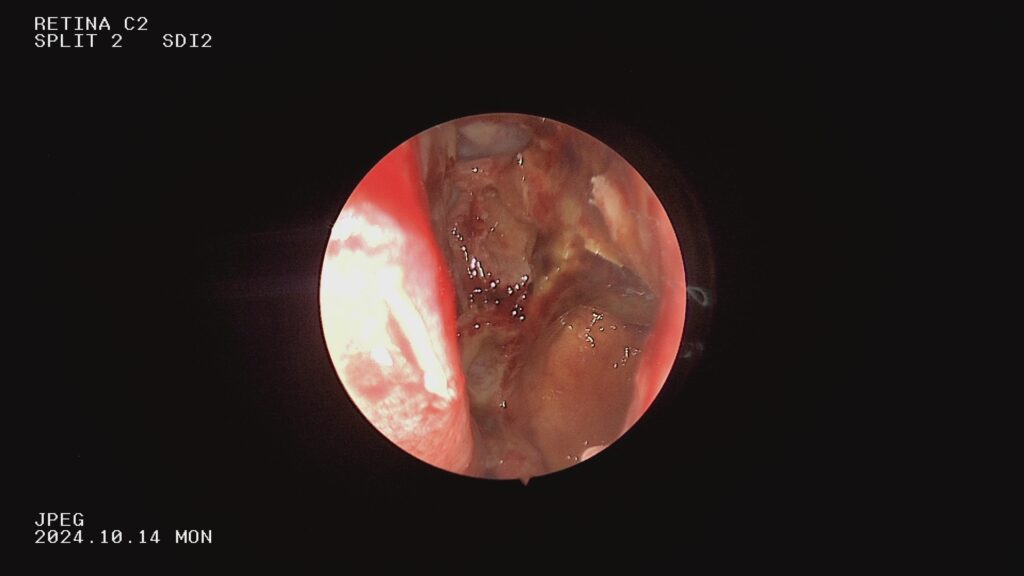What is odontogenic sinusitis?
As the name suggests, odontogenic sinusitis is a disease that causes sinusitis due to inflammation caused by problems with the teeth and gums. Therefore, odontogenic sinusitis can only occur when inflammation occurs in the upper molars near the floor of the maxillary sinus.
Causes of odontogenic sinusitis
Since the roots of the molars are usually in contact with the bone of the maxillary sinus floor, the most common occurrence is when the implant penetrates the floor of the maxillary sinus during a molar implant. Even if the implant is removed, the maxillary sinus opens toward the oral cavity, so if this part is not effectively blocked, it becomes a focus of inflammation and causes continuous inflammation.
How is odontogenic sinusitis treated?
I will explain through the case of a person who was treated for odontogenic maxillary sinusitis at our hospital some time ago.
46-year-old male patient. After implant, left maxillary sinusitis was observed in the image taken at the dentist and requested

First, drug treatment is attempted. Maxillary sinusitis recurred repeatedly as inflammation flows in from the teeth
The implant is removed at the dentist
After implant removal, maxillary sinusitis recurred as inflammation occurred through the damaged area of the maxillary sinus floor
The dentist performed surgery to block this area, but the inflammation recurred. Facial pain and toothache were complained of
In this case, the inflammation in the maxillary sinus continues to cause these uncomfortable symptoms. In the ENT department, if dental problems continue to cause sinusitis, a procedure is performed to widen the maxillary sinus while looking through an endoscope to help drain the inflammation and induce ventilation of the maxillary sinus.
Postoperative image


If you look at the image, you can see that the maxillary sinus is well opened and the inflammation has subsided a lot. You can also see in the endoscopic image that the maxillary sinus and the surrounding ethmoid sinus are well opened. This patient has now completed ENT treatment. Since the maxillary sinus has been opened widely, the frequency of antibiotic use is expected to decrease significantly, and the symptoms of maxillary sinusitis are expected to almost completely disappear.
